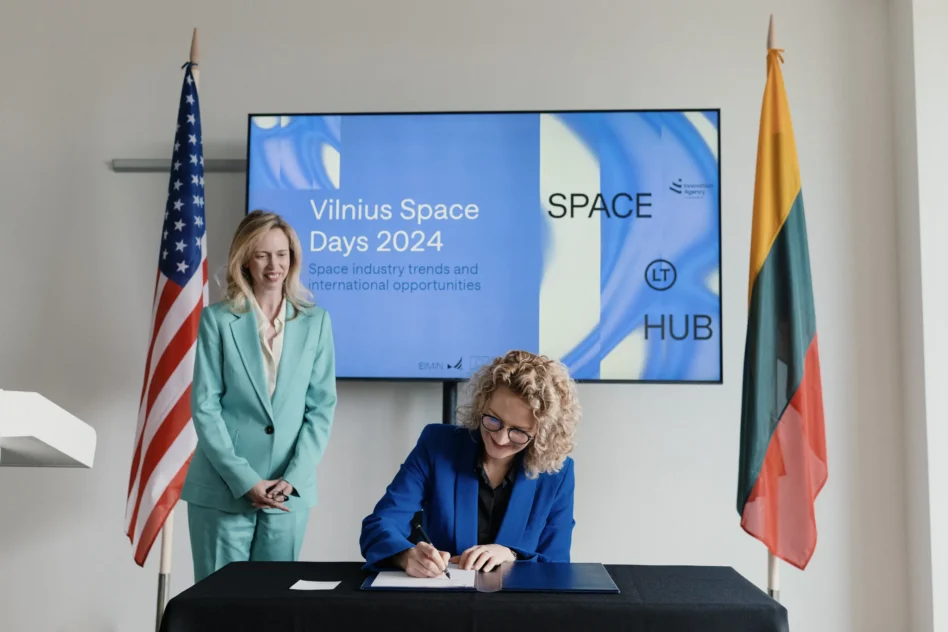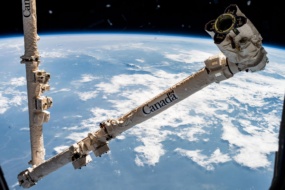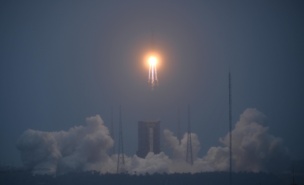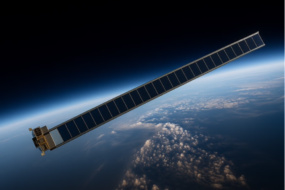State Department officials often talk up the benefits of joining the Artemis Accords, even for nations without a large space program, making the case that everyone should have an opportunity to help set the norms in a domain that will only see more participants in the future.
For one of the newest signatories, that argument rings true.
“For us, it’s very important to become a part of international cooperation platforms and international initiatives,” Neringa Morozaitė-Rasmussen, Lithuania’s vice-minister of the economy and innovation, told Payload. “We see it as an important agreement that…emphasizes peaceful exploration, which is the essence for us.”
Lithuania joined the accords May 15 during a ceremony in the capital of the Baltic nation on the sidelines of the city’s Vilnius Space Days conference.
Membership benefits: The Lithuanian space sector is poised to get two major benefits from signing on to the accords, according to Morozaitė-Rasmussen.
- More technological expertise that comes from sharing knowledge and working with other nations
- Better cost efficiency, allowing Lithuania to join ambitious space projects and share costs with international partners
Gung ho: Even though Lithuania has a less developed space program, the nation still has much to contribute to the group, not only in niche areas of excellence for the country such as optical or laser systems, but also the enthusiasm and hunger that comes from being a younger space program, she said.
US relations: The Artemis Accords are an international agreement, but signing on also marks an important step forward in the bilateral relationship between the US and Lithuania, according to Audra Plepyte, the Lithuanian ambassador to the US.
“Lithuania has been a trusted partner to the US in security and defense, democracy and human rights, energy security, and economic and trade relations. Now, we are enhancing our cooperation in space exploration,” she said in a statement.
That cooperation extends to some of the youngest members of the space community. Lithuania has had an agreement with NASA since 2014 that allows Lithuanian students to intern at the US space agency. In 2025, 20 Lithuanian students will intern at NASA sites in California, Maryland, and Texas, the ambassador said.
State of play: Lithuania became an associate member of ESA in 2021. Morozaitė-Rasmussen said the nation’s space industry is small, and mostly dual use, but officials are looking for that to change.
“We intend to grow it because we have the intention to apply for full membership of ESA,” she said.
The industry is specializing in a couple specific areas, she said, including:
- Small sats
- Space-based data
- Optical and laser technology
- And space systems engineering
Signing party: The Artemis Accords aren’t the only international agreement that Lithuania recently joined. Last month, the country also signed ESA’s Zero Debris Charter, which has set the goal of nations becoming debris neutral in space by 2030.




